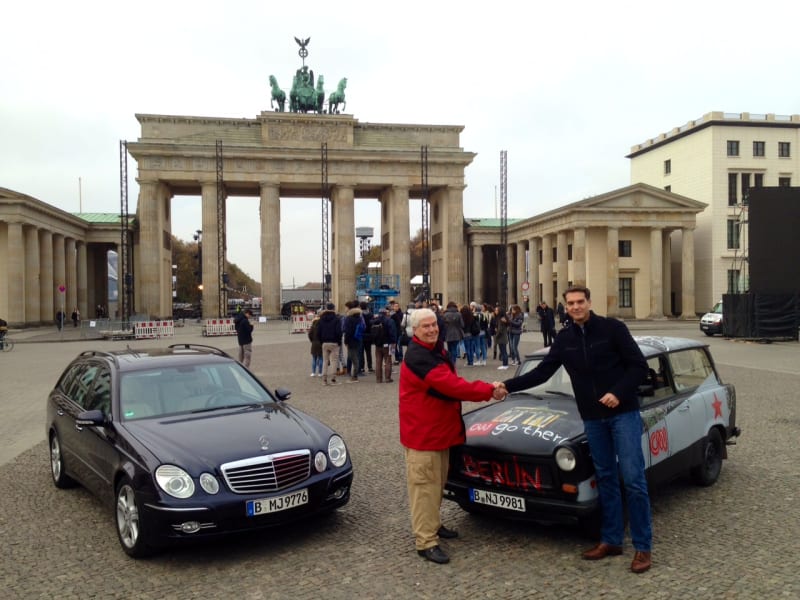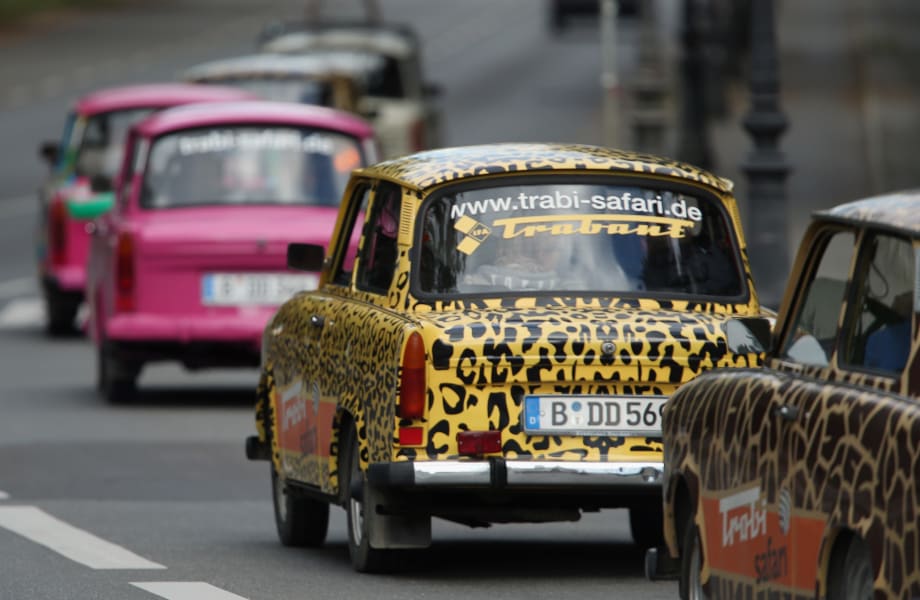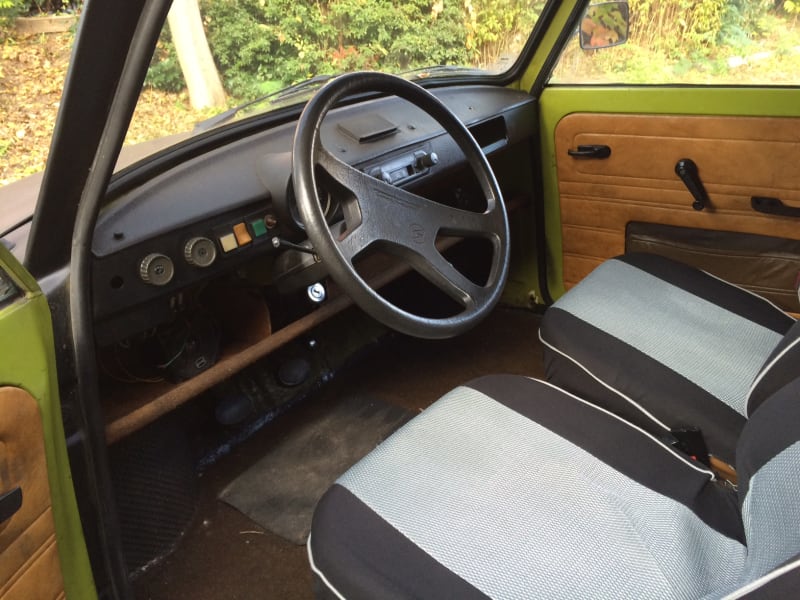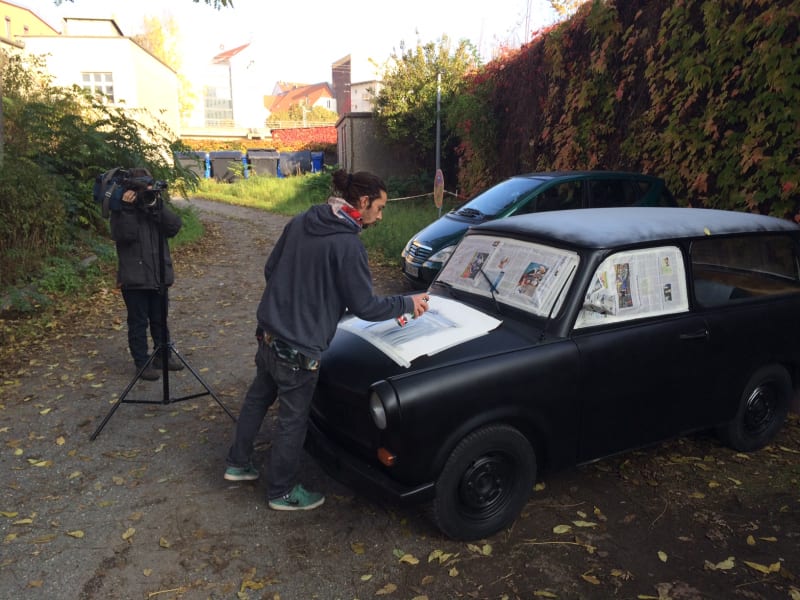Share
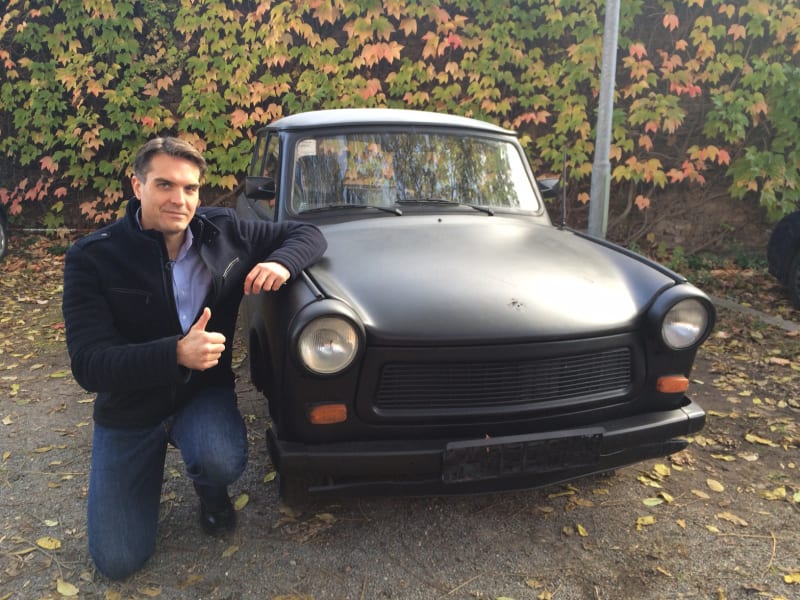

1 of 12
CNN's Frederik Pleitgen poses next to a Trabant, before it was painted and signed by thousands. The vehicle has been an icon to Germans ever since the tiny Communist-built cars started rolling across the border between what was then East and West Germany in 1989. Frederik Pleitgen/CNN
Pictured is the Trabant interior. "Slipping behind the wheel of a Trabant is sort of like squeezing into a sleeping bag -- especially when you're 6 feet 5 inches tall, like me," says Pleitgen. Frederik Pleitgen/CNN
CNN hired the artist Martin Raumberger to give the car a makeover. He focused on three themes: Berlin, CNN, and the fall of the Berlin Wall. Frederik Pleitgen/CNN
Raumberger sketched several of Berlin's most famous symbols on CNN's Trabi, including the broadcast tower and the Brandenburg Gate. He also drew a tree of people breaching the Berlin Wall, a symbol of human life penetrating and destroying the anti-human barrier that separated East and West Germany. Frederik Pleitgen/CNN
The Trabant, produced in Communist East Germany by the government-run conglomerate VEB Sachsenring from 1957 till 1990, was flawed from inception. A few tweaks were made to the design in 1962, but fundamentally the car never really changed. Frederik Pleitgen/CNN
"On November 9, thousands of people crowded around our car to sign it, draw on it, and take their picture with it. At some point the authorities asked us to stop because the crowd grew so large that it was blocking the bike path and the street at the East Side Gallery," says Pleitgen. Frederik Pleitgen/CNN
Thousands of people have scrawled their names with permanent marker on the parts of the Berlin Wall still standing today. Pleitgen: "We decided our Trabi should be no different." Frederik Pleitgen/CNN
"Now that the celebrations are over it is time to decide what to do with the CNN Trabant next. It has turned into a real work of art by Martin Raumberger and all those who signed their names on it," he says. Frederik Pleitgen/CNN
The Trabi's frame is made of cheap PVC plastic -- a material the Germans nicknamed "racing cardboard" -- and its tiny frame houses a 26 horsepower, two-stroke engine that runs on a mixture of oil and gasoline. Frederik Pleitgen/CNN
CNN's Jim Clancy (left) and CNN's Fred Pleitgen compare the experiences of driving a Mercedes car and a Trabant. Frederik Pleitgen/CNN
Fans and owners of a Trabant gather at the 2011 International Trabantfahrer Treffen (International Trabant Drivers Meeting) on June 25, 2011 in Zwickau, Germany. Carsten Koall/Getty Images
Tourists drive Trabant cars on a guided tour through the city center on September 19, 2013 in Berlin, Germany. Several companies now offer tours with the cars. Sean Gallup/Getty Images
